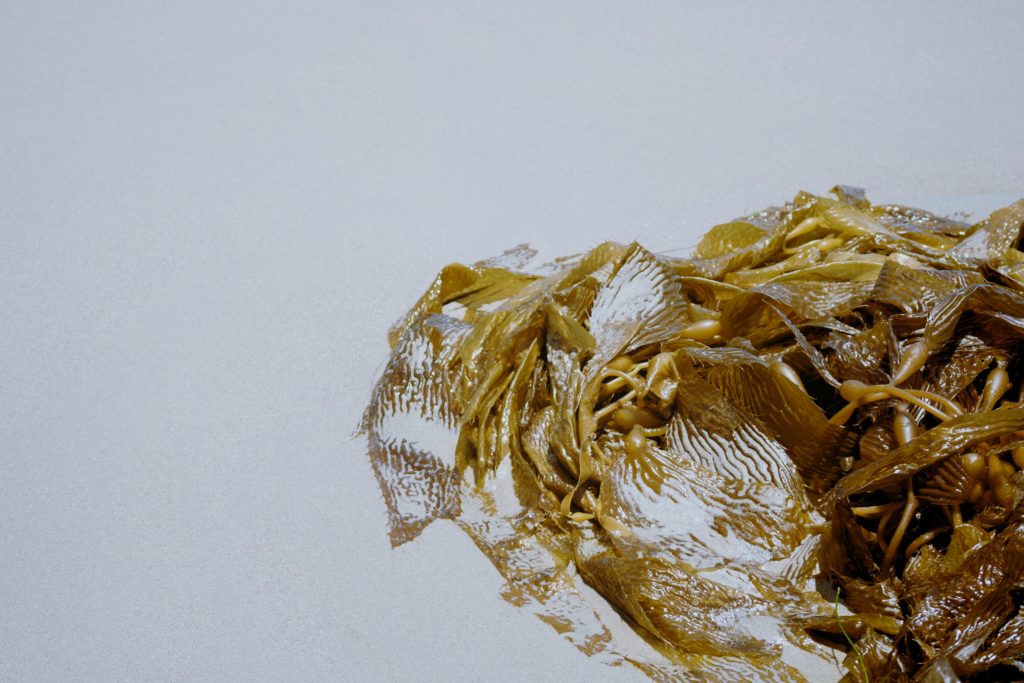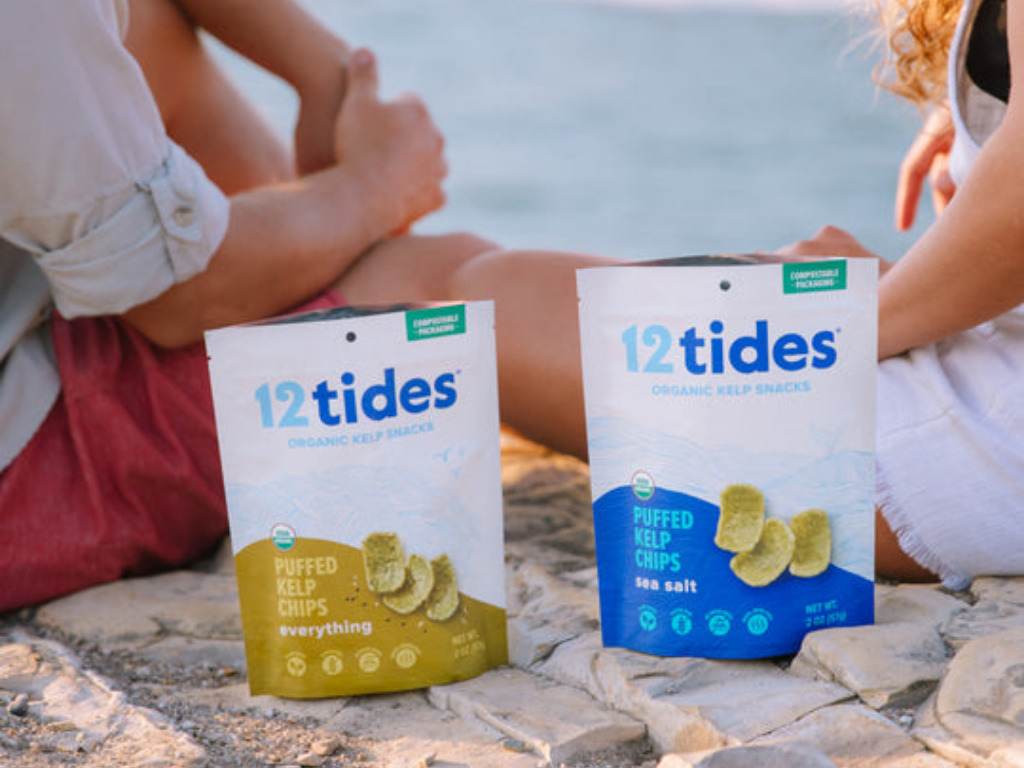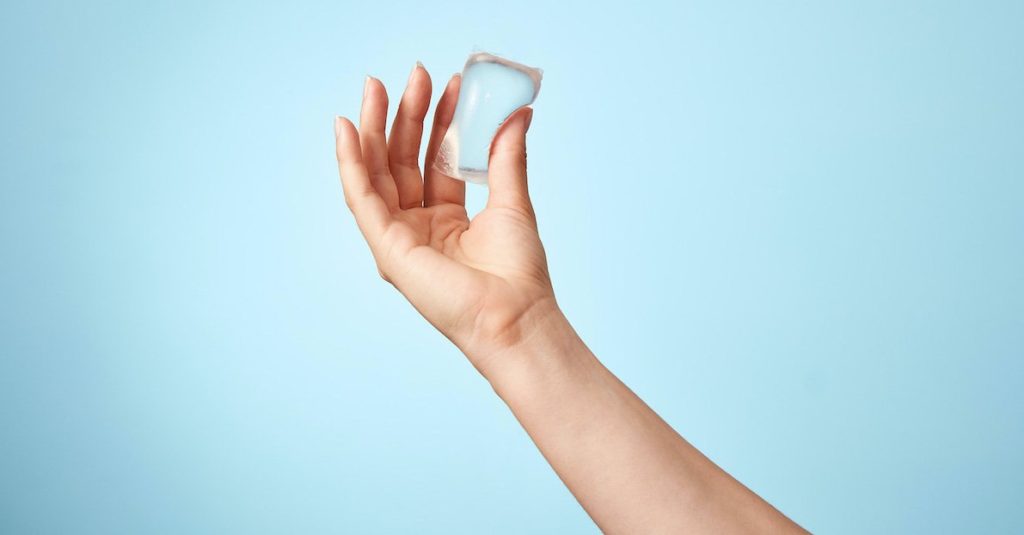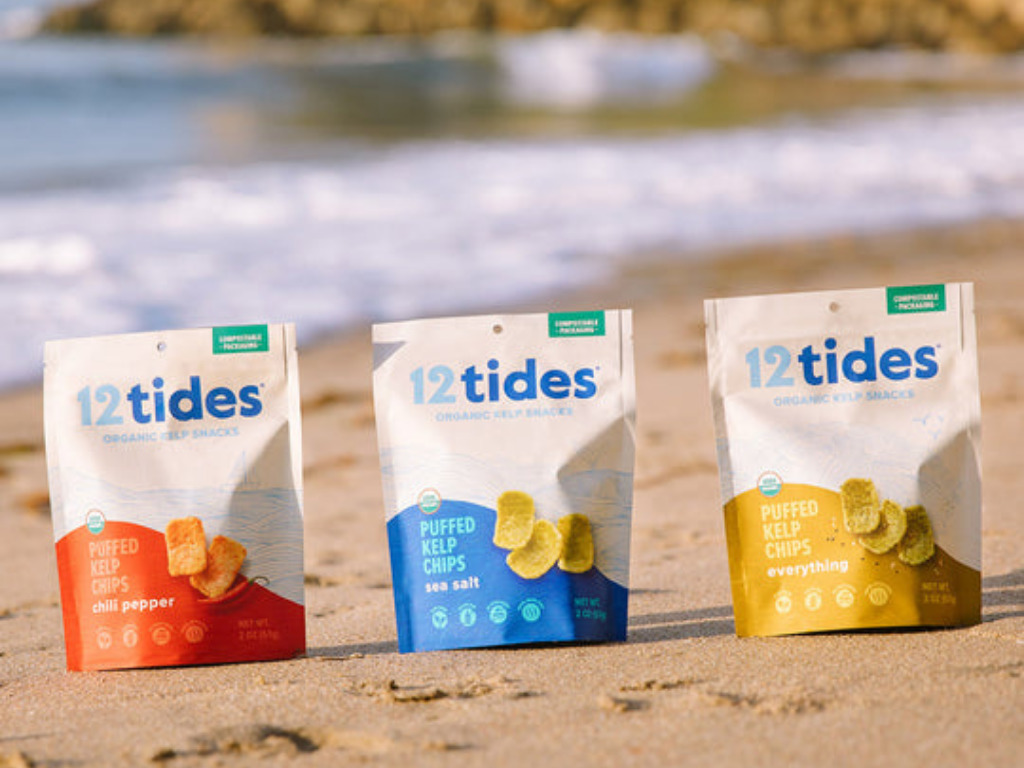4 Mins Read
12 Tides, a San Francisco-based startup has launched what it calls “a new wave of ocean-positive snacking”. Its puffed kelp chips have been developed to make use of regenerative resources and encourage consumers to think carefully about what they eat and how they dispose of their packaging waste.
Founder Pat Schnettler used his background in aquaculture and commercial fishing as inspiration for instigating change. He cites seeing the impact that such industries have on marine life and ecosystems as inspiring him to launch his company. As a Certified B Corporation, 12 Tides operates alongside a mandate to actively improve the way the food system affects the planet’s oceans.

Why kelp snacks?
Kelp-based chips offer consumer appeal and positive environmental impact, according to 12 Tides. Naturally umami in flavour, kelp is high in vitamins, minerals, omega-3s and antioxidants. As a health-forward snack, it is suitable for most eaters, including vegans, and Schnettler was careful to maintain the largely allergen-free nature of his primary ingredient.
Partnering with a James Beard-nominated chef, 12 Tides claims to have turned slippery kelp into a crunchy snack. Gluten-free, fully vegan and baked, the finished products appeal to and are suitable for a wide demographic of consumers. The question remains, do people want to eat seaweed chips? Most likely yes, if they are looking for alternatives to resource and packaging-heavy alternatives that negatively impact the oceans.

Maintaining environmental focus
“In 2018, I began searching for ways to create a better, more regenerative food system for our oceans. On this journey, I found kelp grown on regenerative ocean farms, which requires no pesticides, fertilizers, arable land, or freshwater,” Schnettler revealed in a statement. “Seaweed farming is one of the most resource-efficient food production methods in the world. It positively impacts surrounding water quality and marine life, all while removing CO2 from our oceans and helping to slow acidification.”
Choosing carbon-sequestering kelp as a core ingredient is an earth and commercially-positive move. To align with and support the naturally beneficial process of seaweed farming, 12 Tides is packaged in industrially compostable materials that it cites as being ocean-friendly and plastic-free. The company also contributes meaningfully to connected causes. Since its inception, the startup has been a certified member of 1% for the Planet and donates one percent of all sales to SeaTrees.
The SeaTrees connection is a pertinent partnership, as the organisation seeks to fund ocean conservation projects, including the reforestation of Californian kelp. Though naturally regenerative, funding the systems that maintain crop health is essential, especially for companies depending on reliable supply. All kelp used in 12 Tides’ products is locally sourced, from North American regenerative ocean farms in Frenchman Bay, Maine.

Seaweed as a sustainability champion
Seaweed is proving to be something of a wonder ingredient, with applications stretching far beyond what consumers might expect. Umaro Foods, a fellow Californian startup, revealed this week that it is launching a plant-based bacon, made using seaweed protein. Using select red varieties, it is able to mimic the look and rich umami flavour of animal bacon. The result, the company claims, is a nutritious and sustainable alternative to the traditionally unhealthy pork version.
Moving away from food, Berlin’s Vyld is taking a very different tack. The women-led startup is using kelp to produce sustainable and body-healthy tampons. Seeking to democratise environmentally-friendly menstruation, the startup has secured funding to move from a small-scale business model to mass production and rollout.
2021 saw a number of seaweed packaging companies secure funding to progress their R&D endeavours. Investors appeared to see the value in sourcing natural alternatives to product packaging, as the plastic waste crisis deepened. California’s Sway, London’s Notpla and Scotland’s Oceanium are considered major players, all of which are anticipated to unveil new or improved developments this year after significant funding rounds in 2021.
Lead photo by 12 Tides.




